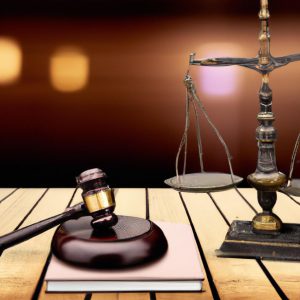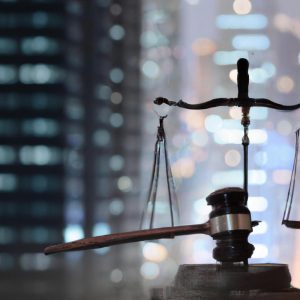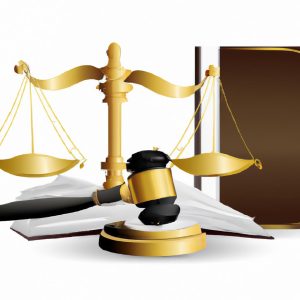In the complex and often emotional landscape of estate planning and probate, the question of what to do when someone dies with a will is of paramount importance. As experienced practitioners at Morgan Legal Group in New York City, we understand the intricacies involved in navigating the legal process that follows a loved one’s passing. From ensuring the validity of the will to overseeing the distribution of assets and settling any disputes that may arise, our team of experts is equipped to guide you through every step of the way with clarity and precision. Join us as we explore the essential steps to take when executing a will and honoring the final wishes of the deceased.
Understanding the Legal Process of Probate
When someone passes away with a will, there are specific steps that need to be taken to ensure that their final wishes are carried out appropriately. The legal process of probate can be complex, but with the right guidance, it can be navigated smoothly. Here are some things to keep in mind:
- Locate the Will: The first step is to locate the deceased person’s will. This document will outline how they wanted their assets to be distributed after their death.
- Contact an Attorney: It is important to seek legal counsel from an experienced probate attorney. They will guide you through the probate process and ensure that everything is done according to the law.
- File the Will with the Court: The will must be filed with the appropriate court in the county where the deceased lived. This will initiate the probate process and allow for the administration of the estate to begin.
- Notify Beneficiaries: It is important to notify all beneficiaries named in the will of the deceased’s passing. This will allow them to be involved in the probate process and receive their share of the estate.
Overall, when someone dies with a will is crucial in ensuring that their final wishes are honored. Seek guidance from a knowledgeable probate attorney to navigate the process smoothly and efficiently.
Roles and Responsibilities of Executors and Beneficiaries
As an executor, it is crucial to understand your responsibilities when someone dies with a will. Your role is to carry out the deceased person’s wishes as outlined in the will. This includes:
- Gathering Assets: Identifying and collecting all assets of the deceased, including bank accounts, real estate, investments, and personal belongings.
- Notifying Beneficiaries: Informing all beneficiaries named in the will about their entitlement and providing them with a copy of the will.
- Paying Debts and Taxes: Settling any outstanding debts, taxes, and expenses of the deceased using the estate’s assets.
Beneficiaries have their own set of responsibilities when someone dies with a will. It is essential for beneficiaries to:
- Review the Will: Carefully examine the contents of the will to understand their entitlement and any conditions or restrictions that may apply.
- Cooperate with the Executor: Work closely with the executor to provide any necessary documentation and information to facilitate the administration of the estate.
- Acknowledge Receipt: Acknowledge receipt of any assets or inheritances received from the estate in writing for record-keeping purposes.

Challenges and Contests to the Will
When a loved one passes away and leaves behind a will, it may seem like a straightforward process to carry out their final wishes. However, there are instances where may arise, complicating the probate process. It is essential to be prepared and understand what steps to take in such situations to ensure the deceased’s wishes are respected and upheld.
One common challenge to a will is when a disgruntled family member or beneficiary contests the validity of the document. This can be a complex and emotional process, requiring legal expertise to navigate. In such cases, it is crucial to seek the guidance of an experienced estate planning attorney who can represent your interests and help defend the validity of the will. Additionally, understanding the grounds on which a will can be contested, such as lack of capacity or undue influence, will be essential in preparing a strong defense.

Navigating Potential Tax Implications and Distribution of Assets
One of the first steps to take when someone dies with a will is to locate the original will document. This can typically be found in a safe deposit box, with the deceased person’s attorney, or in a safe place in their home. Once the will is located, it is important to review the document carefully to understand the deceased person’s wishes regarding the distribution of their assets. **Consulting with an experienced probate attorney can help ensure that the terms of the will are followed correctly and that any potential tax implications are addressed**
Another important aspect to consider when someone dies with a will is the distribution of assets. This process involves identifying all of the deceased person’s assets, valuing them, and distributing them according to the terms of the will. It is also important to consider any potential tax implications of the estate, such as estate taxes or inheritance taxes, and work with a knowledgeable professional to navigate these complex issues. Proper estate planning can help minimize tax liabilities and ensure that the deceased person’s assets are distributed in accordance with their wishes.
| Asset | Value |
|---|---|
| House | $500,000 |
| Stocks | $100,000 |
Q&A
Q: What is the first step to take when someone dies with a will?
A: The first step is to locate and read the will to understand the deceased’s wishes.
Q: What should be done after reading the will?
A: After reading the will, the executor named in the will should file it with the appropriate probate court.
Q: How does the probate process work?
A: The probate process involves validating the will, paying off debts and taxes, and distributing the deceased’s assets according to the will.
Q: Can the will be contested?
A: Yes, the will can be contested if there are grounds to believe it is invalid or if someone feels they were unfairly excluded.
Q: What if there is no executor named in the will?
A: If there is no executor named in the will, the court will appoint an administrator to manage the estate.
Q: How long does the probate process typically take?
A: The length of the probate process can vary depending on the complexity of the estate, but it usually takes several months to a year to complete.
Q: What should beneficiaries do during the probate process?
A: Beneficiaries should stay informed about the progress of the probate process and be prepared to provide any necessary documentation or information when requested.
Insights and Conclusions
In conclusion, navigating the legal and emotional complexities of handling a loved one’s will after their passing can be a daunting task. However, with the guidance of a knowledgeable attorney and the support of friends and family, you can ensure that the deceased’s final wishes are carried out with respect and diligence. Remember to take care of yourself during this challenging time and lean on others for support when needed. May the process of settling the estate bring closure and peace to all involved.
 Losing a loved one is undoubtedly one of the most difficult experiences we can go through in life. During such a challenging time, it can be overwhelming to try and navigate the legal and practical aspects of handling their estate. If the deceased had a will in place, it can provide a sense of relief knowing that their final wishes are documented and accounted for. However, it can still be confusing to know exactly what to do when someone dies with a will. In this comprehensive guide, we will break down the important steps to take in such a situation and provide valuable information and tips on how to handle it all smoothly.
Losing a loved one is undoubtedly one of the most difficult experiences we can go through in life. During such a challenging time, it can be overwhelming to try and navigate the legal and practical aspects of handling their estate. If the deceased had a will in place, it can provide a sense of relief knowing that their final wishes are documented and accounted for. However, it can still be confusing to know exactly what to do when someone dies with a will. In this comprehensive guide, we will break down the important steps to take in such a situation and provide valuable information and tips on how to handle it all smoothly.
Understanding a Will:
Before we dive into the details of what to do when someone dies with a will, let’s first understand what a will is and how it works. A will is a legal document that outlines a person’s final wishes regarding the distribution of their assets, care of minor children, and possible funeral arrangements. It is typically drafted with the help of a lawyer and signed in the presence of witnesses to make it legally binding. When a person passes away, their will goes through a process called probate, where a court determines its validity and appoints an executor to carry out the instructions.
Step 1 – Identify the Executor:
The first step when someone dies with a will is to identify the person designated as the executor of the will. This is the person responsible for managing the deceased’s estate, including paying off debts, distributing assets, and handling any legal matters. If you are the designated executor, you will need to obtain a certified copy of the will as soon as possible.
Step 2 – Notify Relevant Parties:
Once you have the will in hand, the next important step is to notify everyone mentioned in the will of the deceased’s passing. This could include family members, financial institutions, employers, and any other parties named in the will. It is essential to do this promptly, as some assets may have time-sensitive requirements, such as life insurance policies.
Step 3 – Obtain a Death Certificate:
You will also need to obtain a certified copy of the death certificate from the funeral home or local government office. This is a vital document that will be required for most of the following steps, such as closing bank accounts, transferring ownership of assets, and applying for insurance benefits.
Step 4 – Secure the Deceased’s Assets:
It is crucial to secure the deceased’s assets to prevent any potential loss or damage. This includes their home, vehicles, and valuable items. If the deceased had a safe or lockbox, make sure to locate it and secure it as well. This step is essential to protect the assets until they can be distributed according to the will’s instructions.
Step 5 – Determine the Estate’s Value:
The executor of the will is responsible for determining the estate’s value, including assets, debts, and any outstanding taxes. This can be a complex process, so it is recommended to seek the assistance of a financial advisor or lawyer to ensure accuracy.
Step 6 – Handle the Debts:
Next, the executor must settle any outstanding debts of the deceased. This could include mortgages, loans, credit card balances, and any other bills. It is crucial to address these debts before distributing any assets to ensure that there are sufficient funds to cover them.
Step 7 – Distribute Assets:
Once all the debts and taxes have been paid, the executor can then begin the process of distributing the assets according to the will’s instructions. This can include physical possessions, bank accounts, investments, and other assets mentioned in the will. It is essential to follow the instructions carefully to ensure that everything is distributed as the deceased intended.
Step 8 – File Tax Returns:
The executor is also responsible for filing the deceased’s final tax returns. This includes a federal income tax return for the year of their passing and a state income tax return if applicable. It is best to consult with a tax professional to ensure all necessary forms are completed correctly.
Benefits and Practical Tips:
There are a few essential things you should keep in mind to make the process of handling someone’s will go as smoothly as possible. Here are a few helpful tips:
1. Obtain multiple certified copies of the death certificate – you will need these for various legal and financial processes.
2. Consult with a lawyer or financial advisor if you are unsure about any aspect of the will.
3. Maintain detailed records of all transactions made on behalf of the estate.
4. Keep all beneficiaries and interested parties informed and updated throughout the process.
Case Study – The Importance of Having a Will:
In the event of someone’s passing, having a will in place can be a tremendous help to their loved ones. Let’s look at a hypothetical case where someone passes away without a will, leaving their spouse and two children. Without a will, the estate’s distribution will be determined by state laws instead of the deceased’s wishes. In this case, the surviving spouse would receive a specific portion of the estate, and the rest would be split equally between the children. This could create potential issues if the deceased wanted to leave more to one child than the other. Having a will in place ensures that the deceased’s final wishes are known and carried out.
First-Hand Experience:
“I recently went through the process of handling my grandmother’s estate after she passed away, and it was a big learning experience for me. She had a will in place, but I was still unsure of the exact steps to take. I consulted with a lawyer, and they guided me through the process, making everything much more manageable. My advice to anyone in a similar situation would be to seek the help of a professional and to maintain detailed records of everything for your peace of mind.” – John, 34.
In conclusion, knowing what to do when someone dies with a will can make a difficult time a little bit easier. By following these essential steps and seeking the help of professionals when needed, you can ensure that the deceased’s final wishes are carried out correctly. Having a will in place is also crucial for anyone to have to minimize confusion and potential disagreements among loved ones. Remember to also take care of yourself and your mental well-being during this difficult time.







